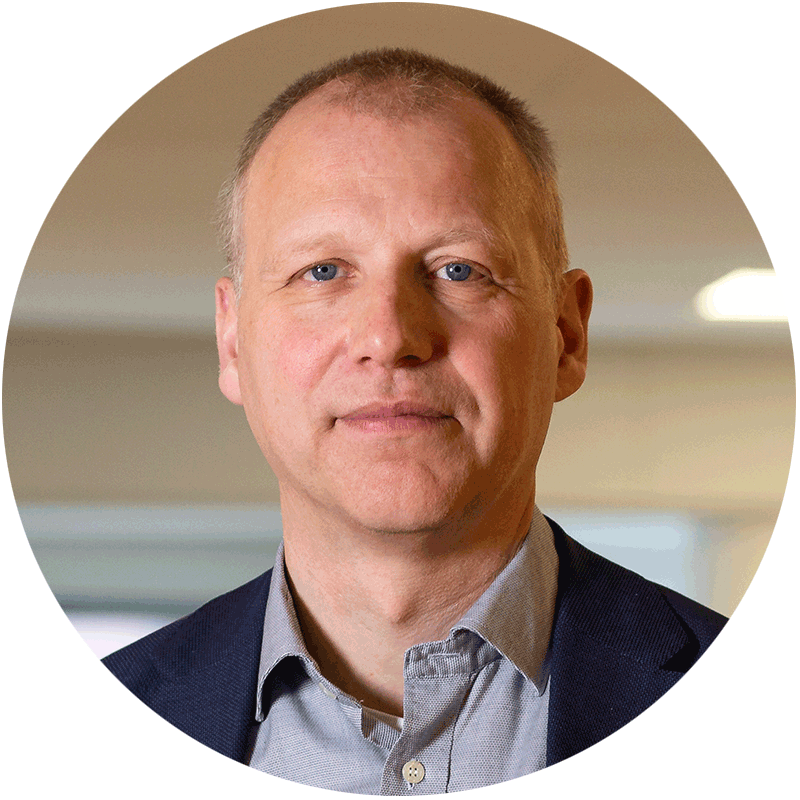
Society needs more visionary building contractors
As a building contractor, it can be easy to fall into the operational and administrative trap. This produces uniformity in the industry and a short-sighted approach that can backfire in the longer term. A better recipe for success is to make space for the bigger, strategic questions and boldly do things differently from everyone else. We asked Fredrik Lidman, program director of SSE Executive Education’s Building Contractor’s Master Class Diploma, to tell us his thoughts on the building contractor role.
As Fredrik sees it, over the years the role of a building contractor has become more of an administrative one. All the regulations and the complexity of major construction projects mean there are lots of elements to keep track of and a never-ending flood of vital decisions that need to be made. For many contractors, this results in an overwhelming focus on the operational aspects. And that means it can be tricky to find the time to look up from all the pressing details and see the project from a far-sighted, visionary angle.
“The role of a building contractor means keeping lots of balls in the air to ensure these kinds of long projects stay on track.”
Complex projects and challenges
There are some key challenges and questions at a strategic level that come up again and again in discussions with students on the Building Contractor’s Master Class Diploma:
How do you keep value creation front of mind?
Many people wrestle with this kind of question in the early, abstract phases in particular. But the fact that a construction project can take years from the original vision to the completed building means keeping the aims of value creation and the vision alive every step of the way poses quite a challenge. The world, public opinion and the surrounding circumstances may change while the project is in progress, and with several actors in the chain, handovers are frequent over the course of the project too.
How do you achieve better organization and collaboration?
According to Fredrik, program participants have countless questions about organization and processes, both internally within the organization and relating to the other actors in the chain. And with lots of actors involved, Frederik thinks there is much to be gained from improving efficiency and establishing good partnerships.
“I’m often struck by the amount of potential I see for these organizations to develop better structures and processes.”
How do you cope with the political dimension?
With large, long projects, the industry is particularly susceptible to political swings and decisions. The level of political involvement in the form of regulations and visions also varies considerably over a longer timescale. For example, we have come a long way from the “million homes program” of the 1960s and 1970s with its strong political vision of improving the standard of living for the majority of the population, to a more deregulated market with an emphasis on more exclusive homes.
Innovation demands reflection and new approaches
A rapidly changing world favors those actors who are able to adapt and develop. An overly uniform market can mean that important social needs, not to mention business opportunities, are missed. At the moment the market is overheated, in Fredrik’s view, and many companies and individuals are therefore overburdened with a large number of projects that all need to be brought to a conclusion. This is not a climate that encourages taking a step back and seeing things from a new angle. Contractors are totally preoccupied by racing to meet deadlines, by their competitors and by the tunnel vision that ensues as a result, to think about value creation or the bigger picture.
“If the industry were to hit a crisis, building contractors would have to stop and think about how they could do things differently. This is fertile ground for development.”
However, the best advice would be not to wait for the crisis. Look ahead now. We don’t need any more building contractors focused on administrative details firsthand, says Fredrik. What we do need is inspired building contractors bold enough to think outside the box, see the wider vision and hold on to it, managing construction projects with a focus on their capacity to create value both immediately and in the longer term.
 Fredrik Lidman is the Program director of SSE Executive Education’s Building Contractor’s Master Class Diploma. The program is designed for people with several years’ experience in the role of building contractor or equivalent. The aim is for you to develop a helicopter perspective of the building contractor role through topics such as general management, finance and leadership, and through exchanging experiences with other participants.
Fredrik Lidman is the Program director of SSE Executive Education’s Building Contractor’s Master Class Diploma. The program is designed for people with several years’ experience in the role of building contractor or equivalent. The aim is for you to develop a helicopter perspective of the building contractor role through topics such as general management, finance and leadership, and through exchanging experiences with other participants.


